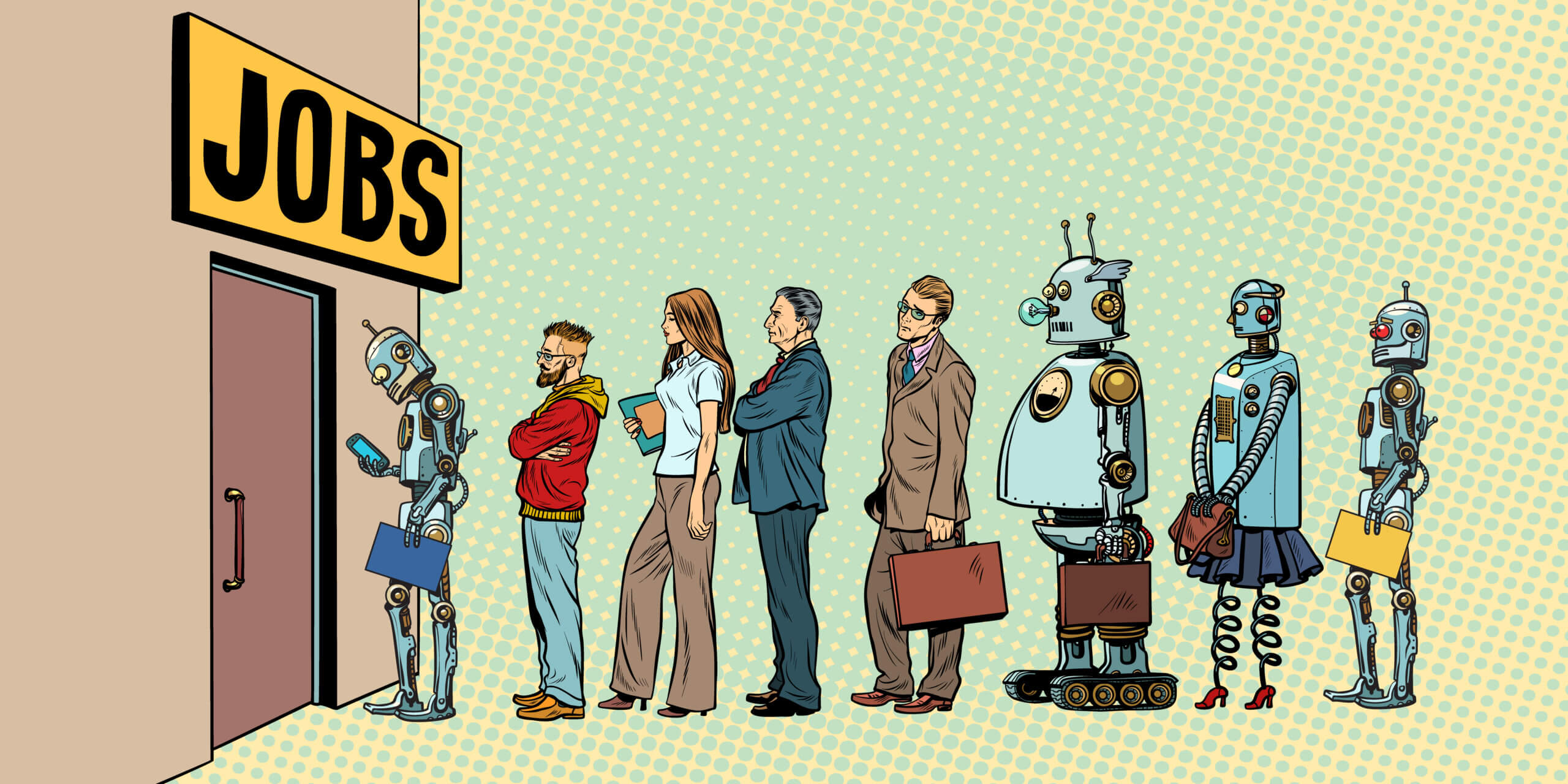The rise of automation
There is no doubt that the future of work looks different to the past. With robots being able to perform routine tasks, the need for individuals to differentiate themselves and demonstrate skills to enable them to stand out in the workforce will become crucial. Research suggests it can be difficult to predict what technology will replace in the future, however, we can still assume certain factors …
A snapshot of society
It is worth noting that while remote and hybrid roles boomed in 2020 and are now here to stay, at least ‘60% of people in Britain still do jobs where working from home is simply not an option.’[1] These jobs tend to be the lowest paid, as well as the most at risk from automation. Indeed, the rise in machines replacing customer service staff is already noticeable on shop floors and in restaurants. Also, jobs such as bank clerks, bookkeeping, data entry and factory work are also at risk of becoming obsolete. And what about young people entering the workplace?
The new generation are socially driven, citing interest in current issues such as the environment and climate change, youth violence and homelessness. They are keen on careers that derive a sense of purpose – the idea of achieving something for the greater good. Equipping young people with the appropriate skills to utilise in conjunction with the sophisticated tools of AI could drive forward these causes. As Abby Gilbert, Director of Praxis at the Institute for the Future of Work states, ‘We need to focus on what human capabilities are best fit to do.’ She identifies that ‘collaboration, communication, problem solving (and) creative thinking’[2] are all necessary skill sets which go hand in hand with AI.
Human and AI Collaboration
Let’s take a further look at the types of employability skill sets that will work effectively with AI. We’ve paired up five key skill sets with EtonX courses!
- Digital Literacy and Data Skills: AI Fundamentals
- With the increasing use of AI and automation, workers will need to be proficient in digital literacy, including the ability to navigate and use digital tools effectively.
- Understanding and analysing data will be crucial, as AI systems rely on large amounts of data for training and decision-making. Skills in data interpretation and analytics will be in high demand.
- Adaptability and Continuous Learning: Resilience
- The rapid advancement of AI technologies means that job roles and requirements are likely to evolve quickly. Employees will need to be able to adapt and stay open to a commitment of continuous learning in order to stay relevant in their careers.
- Equally the ability to upskill and reskill will be essential, as employees may need to learn new tools and technologies to work alongside AI systems.
- Human-Machine Collaboration: Verbal Communication and Making an Impact
- Collaboration with AI systems will soon become a standard part of many job roles. Employees will need to develop skills in working seamlessly with intelligent machines, understanding their capabilities, and leveraging their strengths to enhance productivity.
- Soft skills such as communication, teamwork, and empathy will be crucial in managing human-machine partnerships effectively.
- Problem-Solving and Critical Thinking: Creative Problem Solving and Critical Thinking
- While AI can automate routine tasks, complex problem-solving and critical thinking will remain key human strengths as jobs will increasingly require individuals to analyse situations, make well- considered decisions, and solve any unique challenges that AI may find difficult.
- Creativity and innovation will also play a significant role in developing new solutions and approaches, setting humans apart from automated processes.
- Ethical and Responsible AI Use: AI Fundamentals
- As AI systems become more prevalent, there will be a growing need for individuals who understand the ethical implications of AI and can ensure responsible and fair use.
- Job roles related to AI governance, compliance, and ethics will emerge, and workers will need a solid understanding of the ethical considerations surrounding AI technologies.
Human Value
In the instance of Victoria, a BBC Radio 4 listener who made a career change into nursing at 49, seeking out a renewed sense of ‘enrichment, purpose (and) fulfilment’[3], it is clear that the demand for unique human attributes such as empathy and kindness, are very much needed not only in nursing and care but will always remain pillars of a civilised and compassionate society. We can therefore only assume that while the future job market may look different in years to come, the ability to be emotionally intelligent, think critically and be adaptable will certainly prepare you for the developing world of AI.
Furthermore, if we can harness our human strengths, it is clear that while AI presents its challenges, it also opens a plethora of new opportunities for us to enhance our skill sets and pursue fulfilling careers. By actively preparing for the changes to come, we can not only survive but genuinely thrive in a world revolutionised by AI, adeptly navigating the ever-changing landscape of employment and technology.
Bibliography:
[1] Jobs of the Future, (2023). BBC Radio 4. 3 Aug.
[2] As above.
[3] Jobs of the Future, (2023). BBC Radio 4. 3 Aug.

